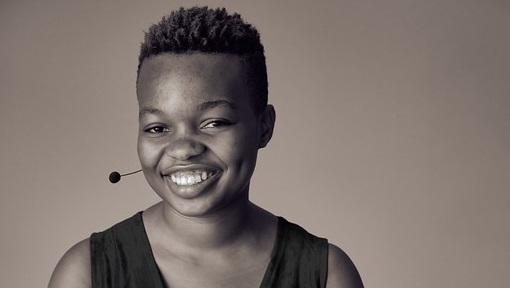We all have them. Those apps we open without thinking. Not because we need anything in particular, but because they feel… safe, in some…
The Rise of Peer-to-Peer Employment

With the increasing rate of youth unemployment in Africa, there is consensus that the formal sector is incapable of absorbing the ever-growing population of young job seekers into the labour market.
Hence, the need to embrace entrepreneurship which, according to scholars, provides better economic opportunities for young people in terms of income generation.
In light of this, many African youths have embraced entrepreneurship against all odds and are now at the forefront of championing job creation for both their peers and other age categories of the labour force.
Here, three cases from Uganda, Nigeria, and Kenya respectively showcase the experiences of very young entrepreneurs who launched their startups through the Anzisha Prize and now create economic opportunities for their peers. Their stories may inspire other young people considering a future in entrepreneurship.
Collaboration with Other Young People
Having lost her brother to diarrhoea, Ugandan Birungi Saudah (pictured above), 23, was motivated to use the knowledge she gained from the Social Innovation Academy to co-found Tusafishe, a Swahili word for “Let’s clean”.
Tusafishe is a technology-driven company that uses environmentally friendly and locally available materials to design and install institutional water filters to ensure that local communities have access to potable water. Established in 2019, the company has grown to a team of eight with ages between 20 and 35 years
Speaking on working with both very young (18 to 25 years) and older (26 to 35 years) youths, Saudah stated her preference for the older age category based on their stability, commitment, reliability, and experience.
She also believes they are more likely to stick to the company for a longer time than the younger ones who are still very energetic and adventurous:
“I love and will always love to work with my peers for their creativity and innovativeness, however, they have to first convince me that they believe in my vision,” said Saudah.
She also attributed her success to her team, affirming that the company cannot exist without them.
Considering her dream of expanding to other regions in Uganda and other Africa countries, Saudah is certain that many young people will get an opportunity to work with the team in the future.
The importance of courage
Launched in 2019 by Abdulwaheed Alayande, Trep Labs is a Nigerian-based innovation lab designed to build and provide low-cost hardware solutions to health problems in Africa.
This vision was inspired by the high rate of mortality recorded among pregnant women and babies in 2019, which was mostly attributed to high blood pressure and inappropriate, manual infusion process.
“We decided to build RealDrip, a low-cost infusion monitoring device which monitors drip flow rate, dosage administration and automates the entire treatment process, because we believe no one deserves to die from clinically-preventable incidences”, said Alayande.
The growth of the company, which is now in partnership with the Nigeria Institute of Medical Research (NIMR) and the Office of Human Research Protection (OHRP) in Nigeria, has been rapid in the space of barely one year.
Earlier this year, they showcased their unique world-class product at the UK-Africa Summit held in London, making them one of the only two indigenous companies selected from Nigeria. According to the co-founder, a recipient of the Anzisha Prize (2019), the success of the company is solely attributed to the team who are aged between 20 to 25 years old.
Unlike Saudah, Alayande has a high work preference for very young people in his age category. This preference is based on the relegation of many Nigerian youths on the unemployment chart due to their lack of experience.
“Innovation and courage could easily replace experience,” said Alayande.
He explained that young people are proactive, innovative, highly motivated and passionate. To him, compared to just experience, these factors are more important for any enterprise to succeed and summarizes his preference to work with his peers.
In addition to this, he believes that young people in his age category (18 to 25 years) work with undivided attention since they have little or no household responsibilities.
Trep Labs serves as a source of employment for youth, currently employing 4 full-time staff and 2 interns. The company is now looking to increase its operations through mass production to reach more private and public clinics across all the states in Nigeria as well as expand to other African countries.
“I would urge my fellow youths willing to become entrepreneurs to never bank on the challenges but, to get going, hit the ground running until they become successful in their chosen enterprise”.
Providing jobs for youths
Geoffrey Mulei, the founder and CEO of Tanda, set out with Inkisha in 2016, a company that produces eco-friendly packaging bags.
However, following the ban on plastic bags in Kenya in 2017, Mulei felt there are other ways he could contribute to his community. As an entrepreneur who is passionate about indigenous people, he identified an even more challenging gap which mostly affects local shop owners and rural people.
“Most local shop owners and rural dwellers are faced with numerous challenges ranging from access to financial services to lack of access to inventory on credit”, said Geoffrey.
To fill this gap, he started Tanda, a fintech startup that turns neighbourhood small stores into one-stop shops that provide digital financial services such as utility payment, banking, and insurance to unbanked people.
Interestingly, Tanda replaced the use of hardware to access financial services with the use of phones, making it easier to bank on the go.
Since its inception in 2017, Tanda has been able to bring digital financial services to over 1 million unbanked people through over 7,000 neighbourhood agents across 30 counties in Kenya.
Not only is Mulei ensuring that people get access to timely financial services, but he is also solving a major global challenge of youth unemployment resulting from youth bulge and declining opportunities in the formal sector. His enterprise currently employs 50 young persons, of which a larger percentage is below the age of 25.
“My very young employees are energetic, risk lovers, and record the best performance compared to their counterparts,” he proudly stated.
He recognises the importance of having a balance between very young and older employees. “Older people come with experience which sometimes guides against failure while the younger ones come with energy and innovative ideas,” he affirmed.
In the next 5 years, he hopes to expand his venture to reach 100 million unbanked people with 400 000 agents across four African countries including Ghana, South Africa, Cameroon, and Mozambique.
His advice to young people willing to become entrepreneurs is to take the first bold step to put their ideas out there regardless of the barriers.
This story appeared originally on the Anzisha Prize’s blog on 17 April. See it here.
The Anzisha Prize seeks to fundamentally and significantly increase the number of job generative entrepreneurs in Africa, and is a partnership between African Leadership Academy and Mastercard Foundation. Through Ventureburn, they hope to share inspirational and relatable stories of very young (15 to 22 year old) African entrepreneurs and the people that support them. [learn more]

